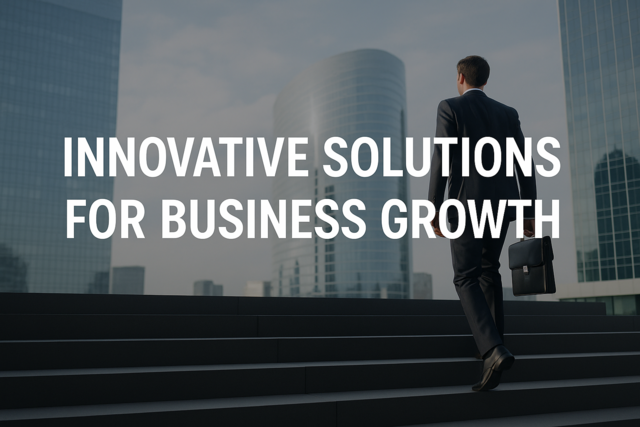Online Class: Career Resilience and Adaptability
This course offers a transformative experience that empowers participants to navigate career uncertainties with resilience, adaptability, and foresight, by fostering emotional intelligence and leveraging new technologies. Participants will emerge with a personal brand deeply aligned with their core values, prepared to lead in an ever-evolving professional landscape.

Self-Paced, Online Class
Rodman Public Library
-
15Lessons
-
22Exams &
Assignments -
3Hours
average time -
0.3CEUs
Course Description
Career Resilience and Adaptability
Areas of Study
- Business
- Business Ethics Courses
- Harassment Prevention Courses
- Human Resources Certifications
- Management
- Aromatherapy Courses
- Caregiver Courses
- Career Development Courses
- Communications Courses
- Confidence and Self Esteem Courses
- Healing
- Human Anatomy Courses
- Medical Skills
- Health & Medicine
- Nutrition
- Marketing
- Microsoft Office Certification Courses
- Life Coaching Courses
- Self-Improvement
- Small Business Certifications
- Safety
- Writing Improvement
- Business Writing Courses
Course Lessons
Lesson 1. Embrace Challenges, Foster Growth
This lesson emphasizes the importance of a growth mindset in career resilience, contrasting it with a fixed mindset that restricts personal and professional development. By embracing the belief that abilities can be developed, individuals become better equipped to handle challenges and seize opportunities for growth.
1 Total Points
 Review Practice Worksheet: Lesson-1-Activity-13930.pdf
Review Practice Worksheet: Lesson-1-Activity-13930.pdf Lesson discussions: Reasons for Taking this Course
Lesson discussions: Reasons for Taking this Course Complete: Lesson 1 Activity
Complete: Lesson 1 Activity Assessment: Lesson 1 Review Exam
Assessment: Lesson 1 Review Exam
Lesson 2. Mastering Transferable Skills for Career Adaptability
Recognizing and capitalizing on transferable skills like leadership and technical aptitude allows for adaptability in ever-evolving work environments. By identifying these skills through reflection and feedback, professionals can craft a narrative that enhances career opportunities and embraces future challenges with confidence and competence.
20 Total Points
 Review Practice Worksheet: Lesson-2-Activity-13933.pdf
Review Practice Worksheet: Lesson-2-Activity-13933.pdf Complete: Lesson 2 Activity
Complete: Lesson 2 Activity Assessment: Lesson 2 Review Exam
Assessment: Lesson 2 Review Exam
Lesson 3. Emotional IQ: Adaptability and Career Resilience
Emotional intelligence is crucial for career resilience in today's dynamic workplace, encompassing self-awareness, self-regulation, motivation, empathy, and social skills. These components help individuals adapt, overcome challenges, and cultivate a productive work environment by fostering better emotional management and interpersonal relationships.
15 Total Points
 Review Practice Worksheet: Lesson-3-Activity-13935.pdf
Review Practice Worksheet: Lesson-3-Activity-13935.pdf Complete: Lesson 3 Activity
Complete: Lesson 3 Activity Assessment: Lesson 3 Review Exam
Assessment: Lesson 3 Review Exam
Lesson 4. Networking: The Key to Resilience and Adaptability
Building diverse professional networks allows individuals to gain fresh perspectives and solve complex challenges, as showcased by cross-industry learning that enhances adaptability. Mastery of soft skills like communication and emotional intelligence is crucial for forming genuine relationships, providing career stability and personal branding opportunities.
10 Total Points
 Review Practice Worksheet: Lesson-4-Downloadable-13937.pdf
Review Practice Worksheet: Lesson-4-Downloadable-13937.pdf Complete: Lesson 4 Activity
Complete: Lesson 4 Activity Assessment: Lesson 4 Review Exam
Assessment: Lesson 4 Review Exam
Lesson 5. Embracing Change: Key to Career Longevity
The intricacies of modern workplaces require navigational skills founded on emotional intelligence and robust personal networks. By engaging in meaningful networking and cultivating self-awareness, professionals can thrive amid organizational and industry changes.
19 Total Points
 Review Practice Worksheet: Lesson-5-HomeWork-13940.pdf
Review Practice Worksheet: Lesson-5-HomeWork-13940.pdf Assessment: Lesson 5 Review Exam
Assessment: Lesson 5 Review Exam
Lesson 6. Harnessing Technological Trends for Career Resilience
As technology like AI and automation redefine industries, proficiency in data and cybersecurity remains vital, offering protection and insights in an interconnected world. Continuous learning and digital fluency become pivotal, fostering career longevity and sustained growth in a rapidly evolving digital landscape.
20 Total Points
 Review Practice Worksheet: Lesson-6-Downloadable-13943.pdf
Review Practice Worksheet: Lesson-6-Downloadable-13943.pdf Assessment: Lesson 6 Review Exam
Assessment: Lesson 6 Review Exam
Lesson 7. Mastering Career Stress: Building Emotional Resilience and Adaptive Skills
Recognizing physical and psychological stress symptoms is crucial for its effective management, as prolonged stress can impact mood and job satisfaction. By implementing coping strategies like mindfulness and proper time management, professionals can mitigate stress and enhance resilience.
8 Total Points
 Review Practice Worksheet: Lesson-7-Activity-13947.pdf
Review Practice Worksheet: Lesson-7-Activity-13947.pdf Assessment: Lesson 7 Review Exam
Assessment: Lesson 7 Review Exam
Lesson 8. The Essential Role of Core Values in Career Satisfaction
Harnessing a self-awareness of core values and interests fundamentally transforms career strategy, providing clarity and purpose in both short-term and long-term goal setting. This introspection, often facilitated by mentorship and networking, allows for strategic positioning that embraces change while remaining true to personal aspirations.
19 Total Points
 Review Practice Worksheet: Lesson-8-Downloadable-13950.pdf
Review Practice Worksheet: Lesson-8-Downloadable-13950.pdf Complete: Lesson 8 Activity
Complete: Lesson 8 Activity Assessment: Lesson 8 Review Exam
Assessment: Lesson 8 Review Exam
Lesson 9. Innovation in the Workplace: Building Career Resilience
By fostering a culture of innovation through psychological safety and embracing diversity, organizations can adapt to ever-changing markets and drive professional success. Creating environments that encourage creativity and collaboration transforms challenges into opportunities for growth and resilience.
0 Total Points
 Review Practice Worksheet: Lesson-9-Activity-13954.pdf
Review Practice Worksheet: Lesson-9-Activity-13954.pdf Assessment: Lesson 9 Review Exam
Assessment: Lesson 9 Review Exam
Lesson 10. Crafting a Personal Brand that Thrives in Today's Job Market
Networking plays a crucial role in modern professional development, offering opportunities to gain insights, foster collaborations, and strengthen personal brand narratives. Through meaningful connections, individuals can uncover new trends and expand their professional horizons.
21 Total Points
 Review Practice Worksheet: Lesson-10-WordSearch-13958.pdf
Review Practice Worksheet: Lesson-10-WordSearch-13958.pdf Complete: Lesson 10 Activity
Complete: Lesson 10 Activity Assessment: Lesson 10 Review Exam
Assessment: Lesson 10 Review Exam
Lesson 11. Strategic Insights: Navigating Complex Challenges in an Evolving Job Market
1. Mastering the art of identifying and analyzing complex problems is vital for career resilience in today's dynamic job market. By employing techniques such as root cause analysis and systems thinking, professionals can unravel intertwined issues and foresee unintended consequences, propelling career adaptability and growth.
17 Total Points
 Review Practice Worksheet: Lesson-11-Downloadable-13961.pdf
Review Practice Worksheet: Lesson-11-Downloadable-13961.pdf Complete: Lesson 11 Activity
Complete: Lesson 11 Activity Assessment: Lesson 11 Review Exam
Assessment: Lesson 11 Review Exam
Lesson 12. Navigating Cultural Dimensions for Career Success
By exploring cultural dimensions such as Masculinity vs. Femininity, professionals can tailor their strategies to emphasize competitiveness or cooperation as required by cultural norms. Hofstede's framework serves as a vital tool for navigating the complexities of global workplace dynamics.
20 Total Points
 Review Practice Worksheet: Lesson-12-Downloadable-13965.pdf
Review Practice Worksheet: Lesson-12-Downloadable-13965.pdf Assessment: Lesson 12 Review Exam
Assessment: Lesson 12 Review Exam
Lesson 13. Navigating the Digital Work Landscape: Essential Technologies for Thriving
In a world where remote work has become the norm, mastering collaboration tools like Zoom, Teams, and Slack is crucial for maintaining productivity and fostering effective teamwork. These technologies not only bridge geographical barriers but also enhance professional adaptability and resilience.
20 Total Points
 Review Practice Worksheet: Lesson-13-WordSearch-13968.pdf
Review Practice Worksheet: Lesson-13-WordSearch-13968.pdf Assessment: Lesson 13 Review Exam
Assessment: Lesson 13 Review Exam
Lesson 14. Career Adaptability through Smart Financial Planning
Setting clear financial goals anchors your career path, offering clarity amidst an unpredictable job market, while encouraging proactive adaptability through tangible objectives. Establishing an emergency fund and managing debt are fundamental steps towards professional resilience and financial security.
12 Total Points
 Review Practice Worksheet: Lesson-14-Downloadable-13971.pdf
Review Practice Worksheet: Lesson-14-Downloadable-13971.pdf Assessment: Lesson 14 Review Exam
Assessment: Lesson 14 Review Exam
Lesson 15. Mastering Cognitive Awareness for Professional Growth
Understanding various problem-solving frameworks is essential for career resilience, offering tools like Design Thinking and SWOT Analysis to thrive amid uncertainty. By leveraging frameworks such as Root Cause Analysis and Six Thinking Hats, individuals and organizations can convert challenges into opportunities, leading to innovative solutions and professional growth.
20 Total Points
 Review Practice Worksheet: Lesson-15-WorkSheet-13975.pdf
Review Practice Worksheet: Lesson-15-WorkSheet-13975.pdf Lesson discussions: End of Course Poll; Course Comments
Lesson discussions: End of Course Poll; Course Comments Assessment: Lesson 15 Review Exam
Assessment: Lesson 15 Review Exam
222
Total Course Points
Learning Outcomes
By successfully completing this course, students will be able to:
- Describe the difference between a growth mindset and a fixed mindset, and how each influences career resilience and adaptability.
- Identify strategies to cultivate a growth mindset, including reflective practices and intentional daily habits, to enhance career resilience and adaptability.
- Demonstrate how to create a strategic networking plan that aligns transferable skills with career opportunities within a specific industry.
- Identify and articulate at least three transferable skills, such as communication or leadership, applicable across multiple industries.
- Demonstrate the application of self-regulation techniques to effectively manage stress and enhance interpersonal relationships in professional settings.
- Identify and describe the five key components of emotional intelligence, including self-awareness, self-regulation, motivation, empathy, and social skills, through practical examples.
- Define the role of networking in enhancing career resilience and adaptability by creating meaningful professional relationships rather than transactional connections.
- Demonstrate effective use of digital platforms, such as LinkedIn and Twitter, to build a personal brand and engage with industry thought leaders, expanding career opportunities.
- Demonstrate emotional intelligence by effectively navigating organizational changes, balancing professional and personal responsibilities, and engaging in continuous learning to enhance resilience and adaptability in evolving career landscapes.
- Recognize the triggers and impacts of technological advancements, economic shifts, and social dynamics on career paths, demonstrating adaptability by acquiring relevant skills and competencies.
- Analyze the impact of AI on various industries by identifying at least two specific applications and evaluating their effects on efficiency and productivity.
- Demonstrate proficiency in data analytics tools by interpreting complex datasets to derive actionable insights that improve decision-making and operational strategies.
- Recognize the symptoms and sources of stress in high-pressure careers to develop strategies for effective stress management and resilience.
- Demonstrate mastery of lesson content at levels of 70% or higher.
Additional Course Information

- Document Your Lifelong Learning Achievements
- Earn an Official Certificate Documenting Course Hours and CEUs
- Verify Your Certificate with a Unique Serial Number Online
- View and Share Your Certificate Online or Download/Print as PDF
- Display Your Certificate on Your Resume and Promote Your Achievements Using Social Media

Course Title:
Career Resilience and Adaptability
Course Number:
57701065
Languages:
English - United States, Canada and other English speaking countries
Availability:
You can take this course online in every U.S. state including California, Texas, Florida, New York, Pennsylvania, Illinois, Ohio, and Georgia. International availability includes English-speaking countries like Canada, Australia, the UK, and South Africa.
Last Updated:
January 2025
CEU Value:
0.3 CEUs (Continuing Education Units)
Grading Policy:
Earn a final grade of 70% or higher for successful completion.
Course Type:
Curriculum-Based, Online Class
Instructional Method:
Self-Paced, Asynchronous
Assessment Method:
End of lesson review exams and course final exam
Related Courses
-
 4 hours
0.4 CEUs
The Use of Analytics in Education
+ More Info
4 hours
0.4 CEUs
The Use of Analytics in Education
+ More Info
-
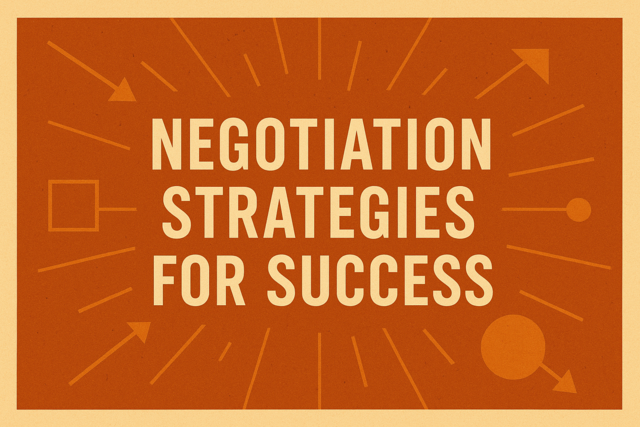 7 hours
0.7 CEUs
Negotiation Strategies for Success
+ More Info
7 hours
0.7 CEUs
Negotiation Strategies for Success
+ More Info
-
 6 hours
0.6 CEUs
Basic Gardening and Plant Care
+ More Info
6 hours
0.6 CEUs
Basic Gardening and Plant Care
+ More Info
-
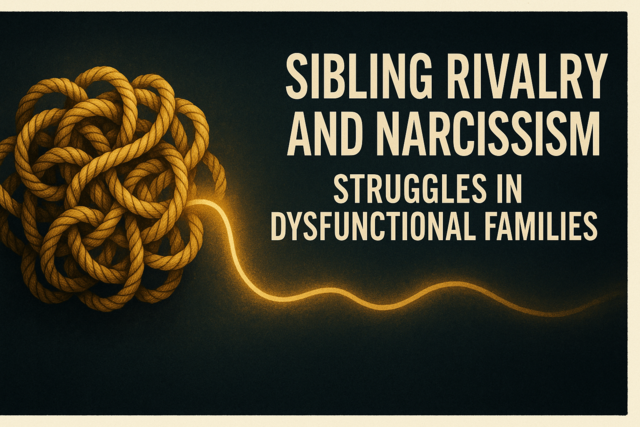 6 hours
0.6 CEUs
Sibling Rivalry and Narcissism: Struggles in Dysfunctional Families
+ More Info
6 hours
0.6 CEUs
Sibling Rivalry and Narcissism: Struggles in Dysfunctional Families
+ More Info
-
 3 hours
0.3 CEUs
Cybersecurity Basics for All
+ More Info
3 hours
0.3 CEUs
Cybersecurity Basics for All
+ More Info
-
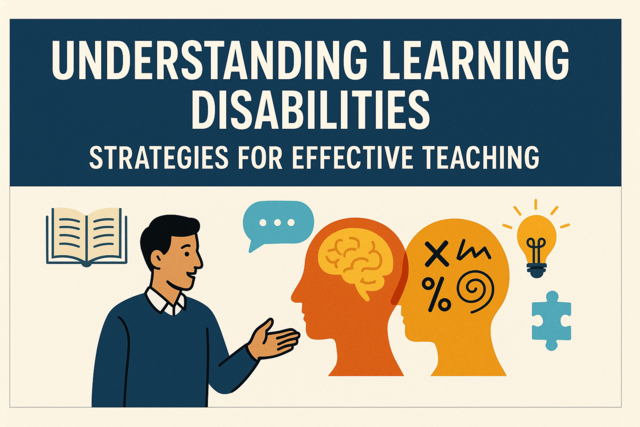 7 hours
0.7 CEUs
Understanding Learning Disabilities: Strategies for Effective Teaching
+ More Info
7 hours
0.7 CEUs
Understanding Learning Disabilities: Strategies for Effective Teaching
+ More Info
-
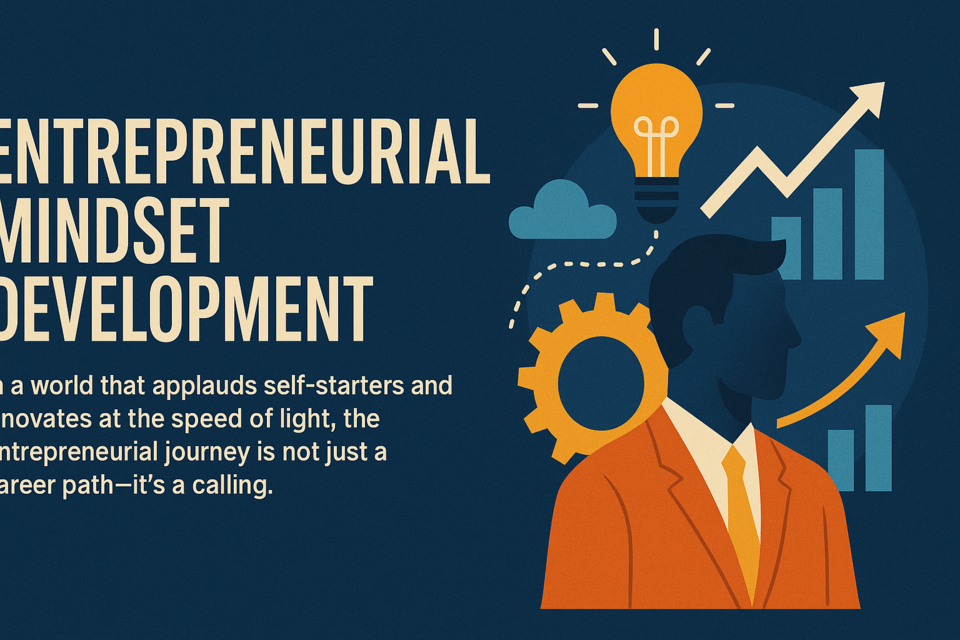 7 hours
0.7 CEUs
Entrepreneurial Mindset Development
+ More Info
7 hours
0.7 CEUs
Entrepreneurial Mindset Development
+ More Info
-
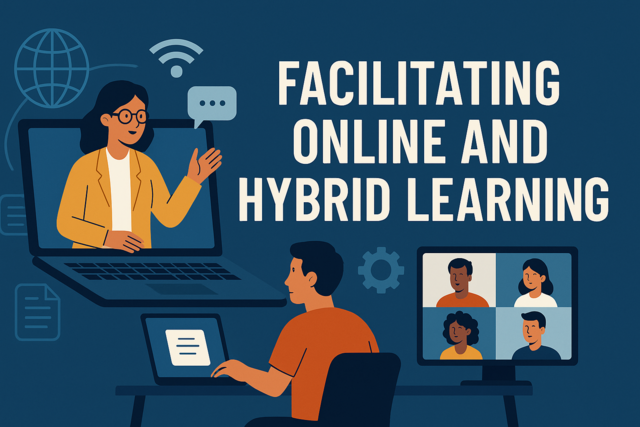 4 hours
0.4 CEUs
Facilitating Online and Hybrid Learning
+ More Info
4 hours
0.4 CEUs
Facilitating Online and Hybrid Learning
+ More Info
-
 7 hours
0.7 CEUs
Building Patience and Tolerance
+ More Info
7 hours
0.7 CEUs
Building Patience and Tolerance
+ More Info
-
 5 hours
0.5 CEUs
The Enigmatic Dimensions of Time
+ More Info
5 hours
0.5 CEUs
The Enigmatic Dimensions of Time
+ More Info
-
 3 hours
0.3 CEUs
Family Dynamics Decoded: Understanding & Improving Interactions
+ More Info
3 hours
0.3 CEUs
Family Dynamics Decoded: Understanding & Improving Interactions
+ More Info
-
 5 hours
0.5 CEUs
Footprint of Fashion: Trends Shaping Modern Luxury Brands
+ More Info
5 hours
0.5 CEUs
Footprint of Fashion: Trends Shaping Modern Luxury Brands
+ More Info
-
 3 hours
0.3 CEUs
The Science of Happiness in Family Life
+ More Info
3 hours
0.3 CEUs
The Science of Happiness in Family Life
+ More Info
-
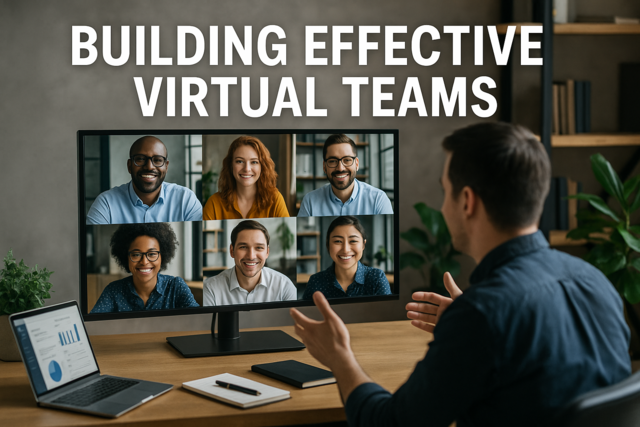 6 hours
0.6 CEUs
Building Effective Virtual Teams
+ More Info
6 hours
0.6 CEUs
Building Effective Virtual Teams
+ More Info
-
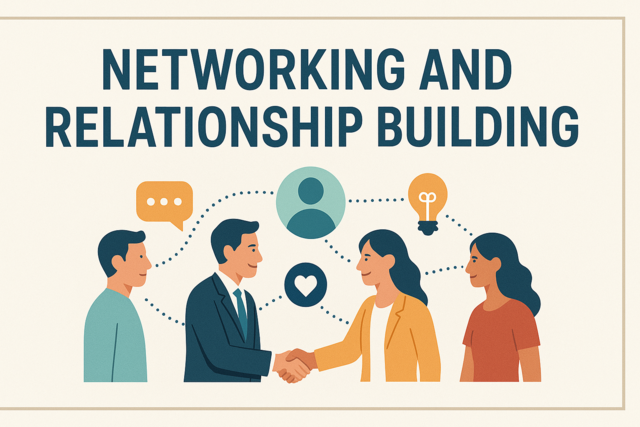 3 hours
0.3 CEUs
Networking and Relationship Building
+ More Info
3 hours
0.3 CEUs
Networking and Relationship Building
+ More Info
-
 6 hours
0.6 CEUs
Project Management for Personal Projects
+ More Info
6 hours
0.6 CEUs
Project Management for Personal Projects
+ More Info
-
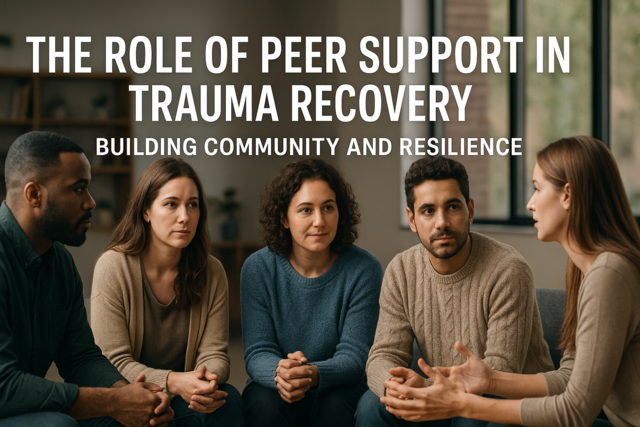 3 hours
0.3 CEUs
The Role of Peer Support in Trauma Recovery: Building Community and Resilience
+ More Info
3 hours
0.3 CEUs
The Role of Peer Support in Trauma Recovery: Building Community and Resilience
+ More Info
-
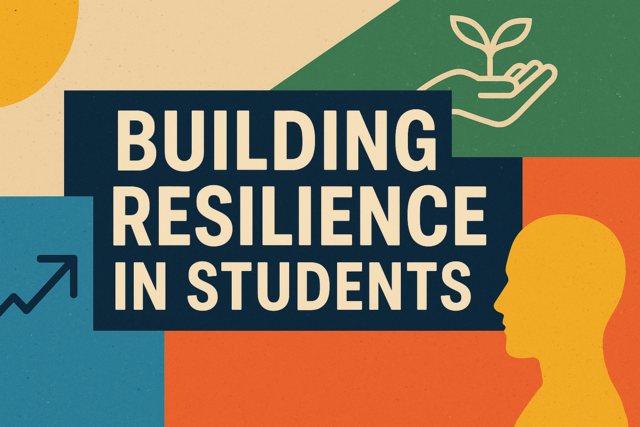 3 hours
0.3 CEUs
Building Resilience in Students
+ More Info
3 hours
0.3 CEUs
Building Resilience in Students
+ More Info
-
 6 hours
0.6 CEUs
The Essence of Elegance: Dressing for Contemporary Sophistication
+ More Info
6 hours
0.6 CEUs
The Essence of Elegance: Dressing for Contemporary Sophistication
+ More Info
-
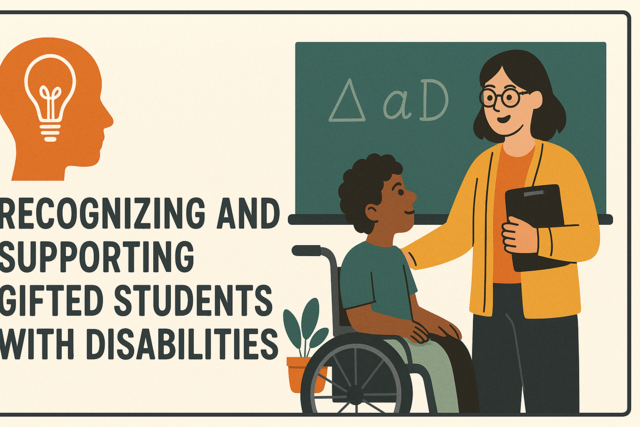 5 hours
0.5 CEUs
Recognizing and Supporting Gifted Students with Disabilities
+ More Info
5 hours
0.5 CEUs
Recognizing and Supporting Gifted Students with Disabilities
+ More Info
-
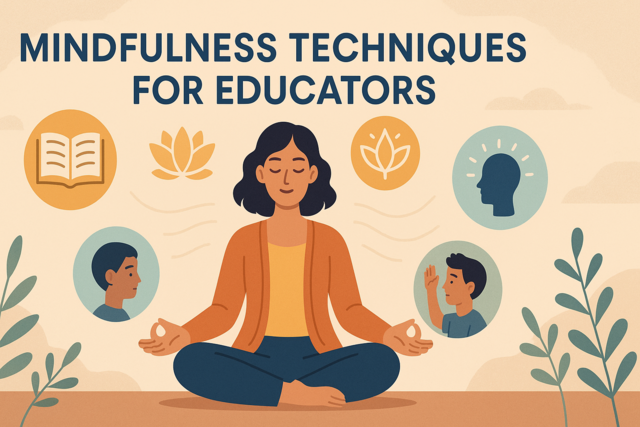 5 hours
0.5 CEUs
Mindfulness Techniques for Educators
+ More Info
5 hours
0.5 CEUs
Mindfulness Techniques for Educators
+ More Info
-
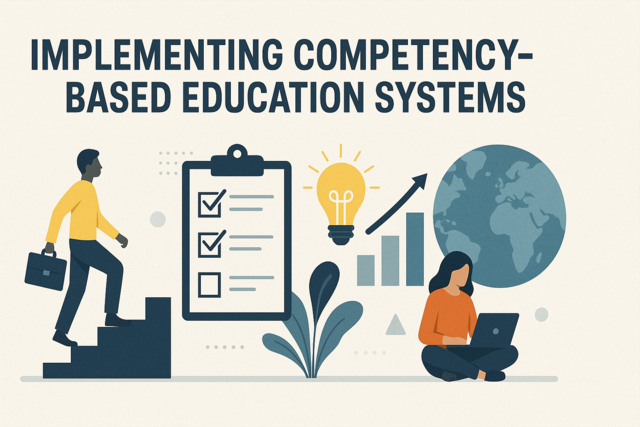 4 hours
0.4 CEUs
Implementing Competency-Based Education Systems
+ More Info
4 hours
0.4 CEUs
Implementing Competency-Based Education Systems
+ More Info
-
 6 hours
0.6 CEUs
Assistive Communication Devices: Maximizing Potential
+ More Info
6 hours
0.6 CEUs
Assistive Communication Devices: Maximizing Potential
+ More Info
-
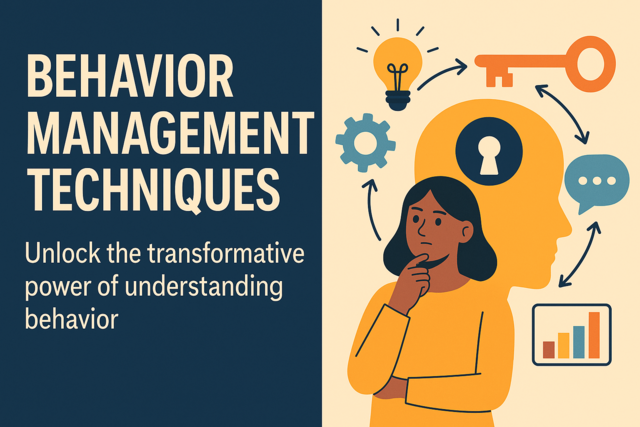 6 hours
0.6 CEUs
Behavior Management Techniques
+ More Info
6 hours
0.6 CEUs
Behavior Management Techniques
+ More Info
-
 5 hours
0.5 CEUs
Understanding Nutrition Labels and Food Choices
+ More Info
5 hours
0.5 CEUs
Understanding Nutrition Labels and Food Choices
+ More Info
-
 7 hours
0.7 CEUs
Self-Care and Wellness Practices
+ More Info
7 hours
0.7 CEUs
Self-Care and Wellness Practices
+ More Info
-
 7 hours
0.7 CEUs
Introduction to Cryptocurrency and Blockchain
+ More Info
7 hours
0.7 CEUs
Introduction to Cryptocurrency and Blockchain
+ More Info
-
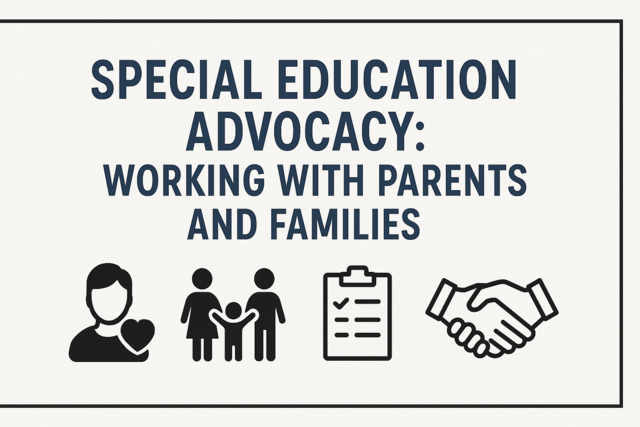 3 hours
0.3 CEUs
Special Education Advocacy: Working with Parents and Families
+ More Info
3 hours
0.3 CEUs
Special Education Advocacy: Working with Parents and Families
+ More Info
-
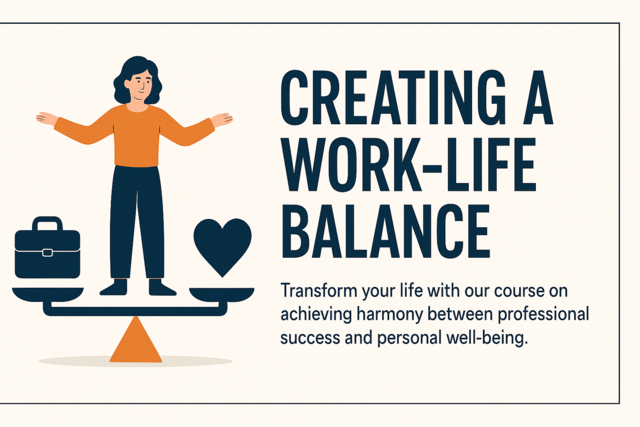 6 hours
0.6 CEUs
Creating a Work-Life Balance
+ More Info
6 hours
0.6 CEUs
Creating a Work-Life Balance
+ More Info
-
 4 hours
0.4 CEUs
Familial Fortitude: Strengthening Bonds from Within
+ More Info
4 hours
0.4 CEUs
Familial Fortitude: Strengthening Bonds from Within
+ More Info
-
 4 hours
0.4 CEUs
Gamification in Education
+ More Info
4 hours
0.4 CEUs
Gamification in Education
+ More Info
-
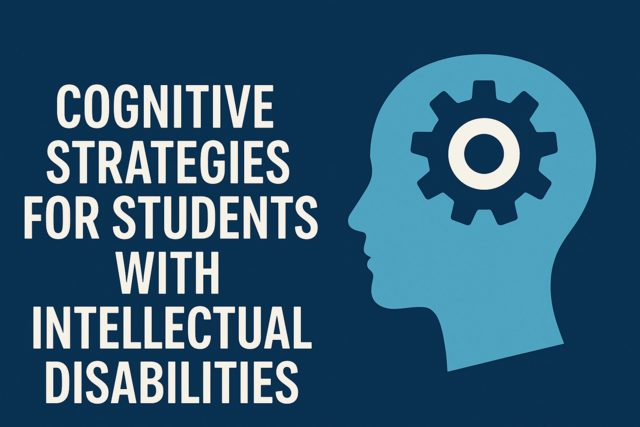 7 hours
0.7 CEUs
Cognitive Strategies for Students with Intellectual Disabilities
+ More Info
7 hours
0.7 CEUs
Cognitive Strategies for Students with Intellectual Disabilities
+ More Info
-
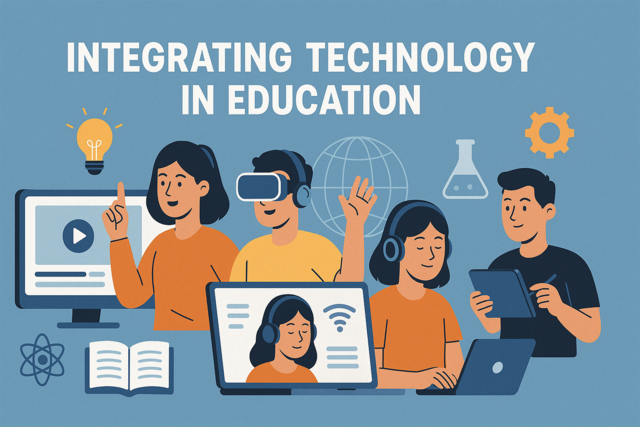 7 hours
0.7 CEUs
Integrating Technology in Education
+ More Info
7 hours
0.7 CEUs
Integrating Technology in Education
+ More Info
-
 4 hours
0.4 CEUs
Energy Medicine: Harnessing Your Body's Power
+ More Info
4 hours
0.4 CEUs
Energy Medicine: Harnessing Your Body's Power
+ More Info
-
 6 hours
0.6 CEUs
The Art of Emotional Intelligence: Building Stronger Connections
+ More Info
6 hours
0.6 CEUs
The Art of Emotional Intelligence: Building Stronger Connections
+ More Info
-
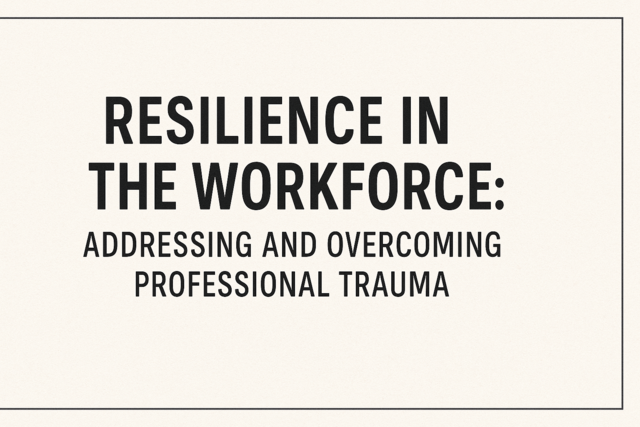 4 hours
0.4 CEUs
Resilience in the Workforce: Addressing and Overcoming Professional Trauma
+ More Info
4 hours
0.4 CEUs
Resilience in the Workforce: Addressing and Overcoming Professional Trauma
+ More Info
-
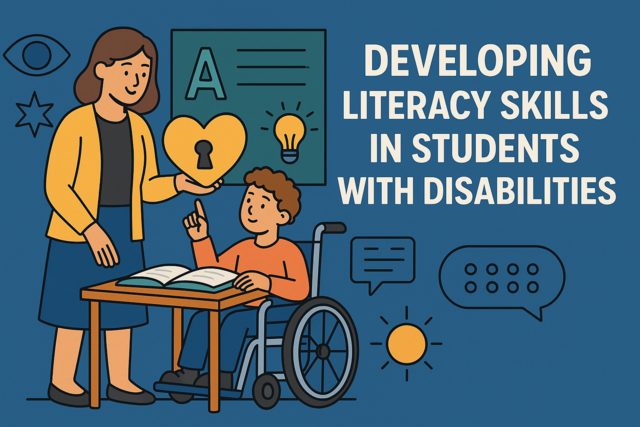 5 hours
0.5 CEUs
Developing Literacy Skills in Students with Disabilities
+ More Info
5 hours
0.5 CEUs
Developing Literacy Skills in Students with Disabilities
+ More Info
-
 3 hours
0.3 CEUs
Education Policy and Reform: Impact and Implications
+ More Info
3 hours
0.3 CEUs
Education Policy and Reform: Impact and Implications
+ More Info
-
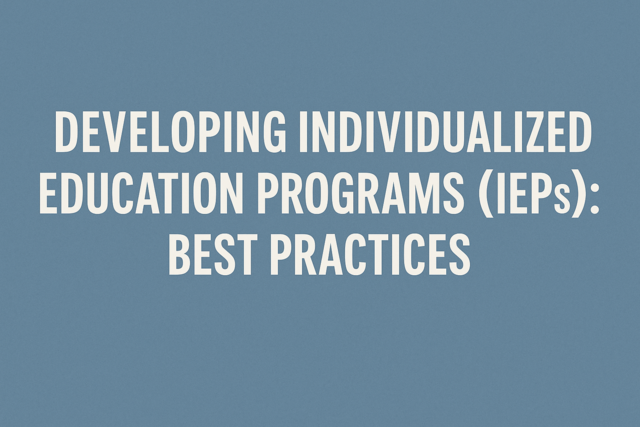 4 hours
0.4 CEUs
Developing Individualized Education Programs (IEPs): Best Practices
+ More Info
4 hours
0.4 CEUs
Developing Individualized Education Programs (IEPs): Best Practices
+ More Info
-
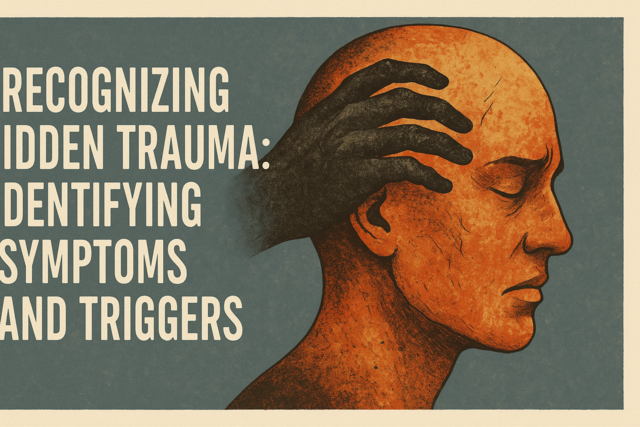 4 hours
0.4 CEUs
Recognizing Hidden Trauma: Identifying Symptoms and Triggers
+ More Info
4 hours
0.4 CEUs
Recognizing Hidden Trauma: Identifying Symptoms and Triggers
+ More Info




